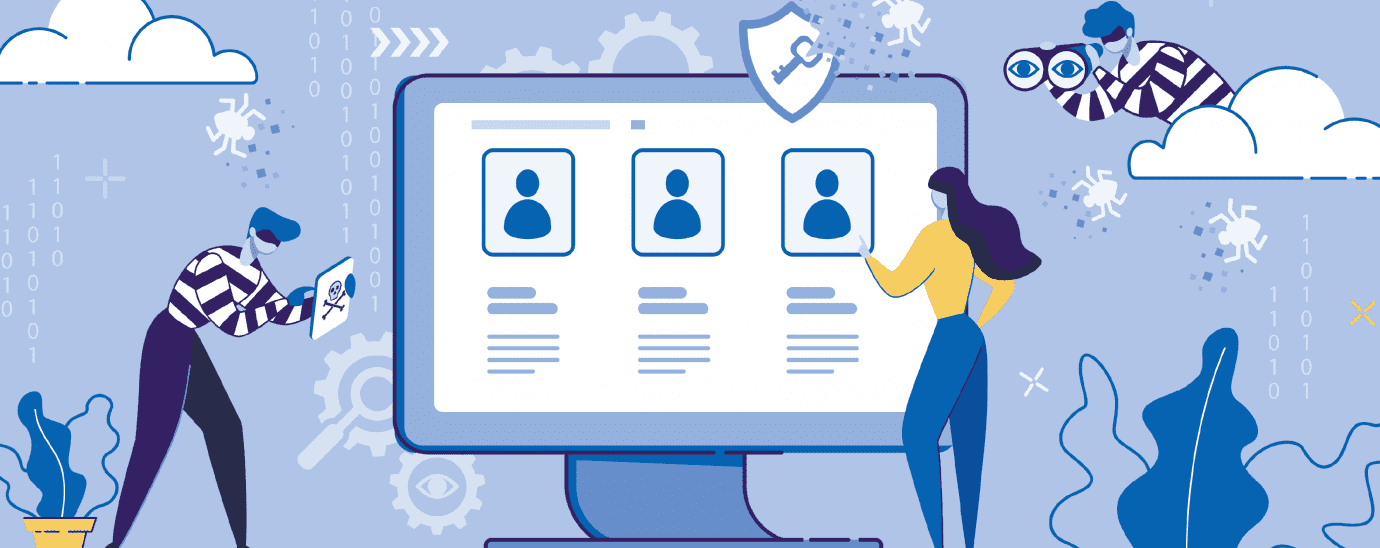Mine: The start-up revolutionising data ownership

Data is a currency. Sure, it doesn’t fold up and sit in your wallet and it’s not a bunch of shiny coins jingling around in your pocket, and for the most part, you can’t sell it. But in a roundabout way, you’re paying for services every day with your data.
It has become a medium of exchange with inherent value. Companies want it. They sell it and they pass it on to other companies who wish to learn more about you and your proclivities.
Can they send you an email at just the right time with just the right message to make you add something to their cart and checkout? Definitely. Could your data find its way into the wrong hands through data breaches and negligence? Probably.
Consider your own data footprint. Every time you download an app, sign up to an online service, make a purchase, leave a like on a post or click an advert, you’re adding to your footprint. Years of internet use has left a trail of breadcrumbs stretching so far into the deep, dark forest that is the Internet that the average user has no way to find it and claim it back. Until now.

Your data, your choice
Mine has finally launched in the UK this week, helping people to locate and take back control of the data trail they’ve left strewn across the internet by using a simple platform, with some serious cutting-edge technology under the hood. After operating under the radar for a year, developing the platform and securing the funding required to launch, Mine has become the first company ever to enable personal data ownership.
“We are entering a decade where people are increasingly concerned with how intrusive everyday apps and platforms have become,” says Gal Ringel, founder of Mine. “Therefore, we decided to invest our efforts into building a solution that will provide consumers with a real choice about who gets to keep their data and how it’s used. We are kick-starting the future of data ownership.”
And kick-start it they have. Mine have analysed over four million digital services and counting, profiling each one in order to help users understand what data is being stored, where it is and how to get it back.
During their research and testing, Mine discovered that, on average, users have 400 different companies in their footprint. 80% of those are unused, laying dormant – perhaps their services are no longer required – but nevertheless, they still have a hold on your data. Should they fall prey to a data breach, take DoorDash or Capital One, for example, then your information could also become compromised.
How do you get your data back?
Using “non-intrusive machine learning”, Mine combs your email inbox looking for forensic traces of digital data which companies may have left through past or ongoing communications. Using this, Mine enables the user to build an intuitive profile of the data they’ve dished out over the years, segmenting and categorising them in order to measure the extent of your exposure. Who has your financial data? What about your identity data? Which companies are privy to your online behaviour? Mine answers all of these questions.

Mine practice what they preach. Its service never reads, collects or stores your email content, it doesn’t hold onto your personal data and it uses only the “absolute minimum” in order to arm you with the tools and information required to start claiming your data back.
To make all this work, Mine leverages global privacy regulations. The regulations differ greatly by country or region. Taking GDPR as an example, one clause, in particular, the “right to be forgotten”, allows users to request that their data be deleted from an online service. These regulations can be a minefield for some, the path ahead isn’t always obvious and companies make no attempt to clarify the process, and that’s precisely the reason why Mine was developed.
In simple terms, at the user’s request, Mine sends an email to the company on behalf of a user asking that all records be deleted. The user is copied-in to all correspondence, so they can keep tabs on the progress of their request, and usually within a matter of days your data will be removed. Upon successfully sending the email request, receiving a reply and your data being removed, Mine can then suggest other companies to target based on your footprint.

Mine is data ownership. In future, companies will be measured by their data transparency, and having Mine’s seal of approval will mean that a company is responsible and reliable when taking on a user’s personal information. Think of it as the Tripadvisor of data. A trusted, impartial service which aims to set the record straight on data ownership.
What Mine has now begun to offer users has been sorely needed. It’s a shot in the arm for organisations to take note and act responsibly. After years of hard work, Gal Ringel and his team now stand proudly at the front of the pack, leading the data ownership movement with a crystal-clear message: this belongs to us, let’s take it back.
Visit www.saymine.com to learn how you can take ownership of your data today.
